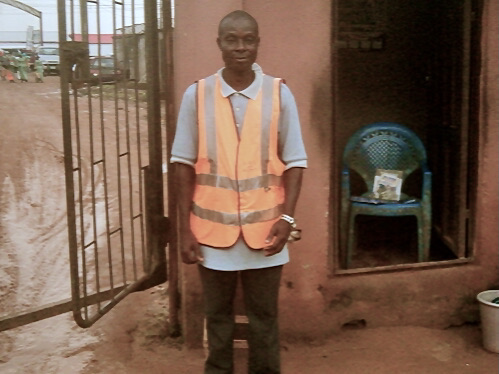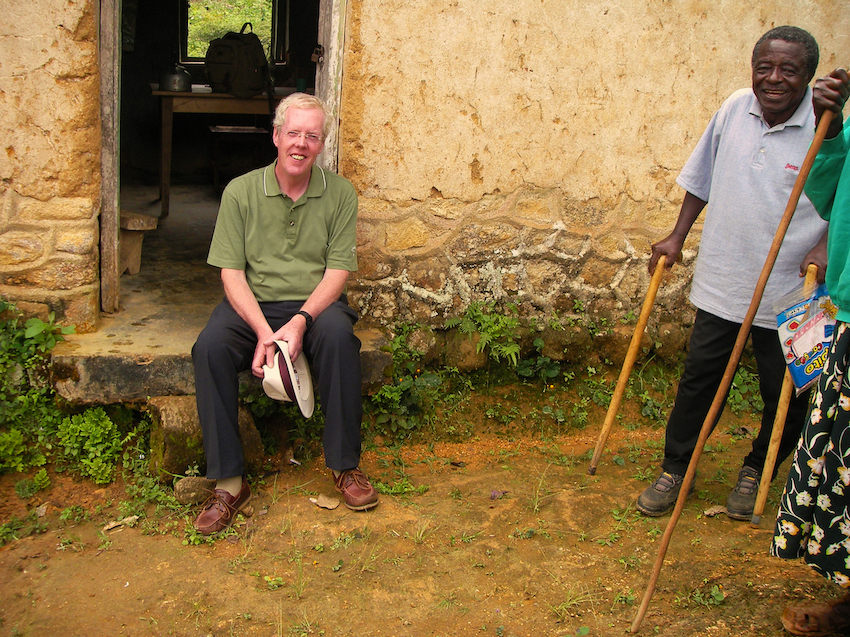The Special Week

In the Igbo culture of eastern Nigeria, the name given to a child can reflect the faith of the parents. Arinzechukwu, for example, means Thanks be to God. Some names mark a moment of uncertainty or a sorrowful event in the life of the family at the time of the child’s birth, for example, the name Ilozumba means our distant home is forgotten.
I got to know Mr. Johnson Ilozumba who lived in the bustling city of Onitsha in Anambra State in the east of Nigeria. Onitsha has a population of over one million people and even at 3 in the morning, the traffic is constant. Most Onitshans seem to be constantly on the move, planning business, doing business. Even at 5am the churches are bursting with devout traders attending daily Mass.
Mr. Johnson Ilozumba was the exception. For 51 weeks of the year, he lived in a small but ample gate house at the front of a wealthy man’s mansion in the heart of the city. He would monitor visitors to his employer’s home and open and close the gates to let them in and out. He worked there, ate there and slept there every day, 24/7. He hardly spent any of his wages. However, one week of the year was special.
The village where Mr. Johnson was born and grew up before moving far away to the city held an annual Cultural Week when the sons and daughters of the village returned to celebrate their cultural heritage, plan development projects for those still living in the old place and generally have a great time feasting and meeting old friends.
Early on a Saturday morning every February, Mr Johnson would take off his ragged trousers, his sandals and old tee shirt, wash and shave with great care, don a finely tailored suit, a smart white shirt and sombre tie and finally put on a fine pair of polished leather shoes. He would then travel by taxi to his village to be welcomed by his large extended family and all the others who had returned ‘home’. Over the next week he was known as Mr. Ilozumba, ‘the wealthy and successful businessman from Onitsha’ who has always been so generous during previous cultural weeks. He would hand out money to all his relatives, give handfuls of cash to young people needing fees for school or university, buy drinks for all and sundry and give a substantial donation to the village improvement projects. “Mr. Ilozumba – what a man! He has not forgotten his home”.
When the dust from the traditional dancing had settled, the food and drink finished, funds raised and the political intrigues of village life resolved, Mr. Johnson got into a taxi and returned to the gate house in Onitsha. He had lived the dream. For the next 51 weeks he nourished his heart with the memories and contentedly looked forward to next February. One week a year was all he wanted and needed because somewhere others believed in him, thought well of him, respected him.
A special week. That is how we often describe Holy Week, the most important week in the Church’s year. A week full of symbolism, of ritual, a crossing of time, a sacred space where we encounter the crucified and risen Christ in the mystery of our life, where every Christian who has ever lived, is living or who will live in the future has been drawn up into him and united together.
Like Mr Johnson, we can nourish our hearts with the memories but really that mystery of the death and resurrection is present with us in every moment and every day. Holy Week is when we have the opportunity to remind ourselves and fully acknowledge the presence of Christ in every aspect of our life as individuals and as a community.
And when Holy Week is over and we return to the humdrum of watching the world come and go, perhaps we will be more conscious that
there is no suffering, no darkness, which is not Him Crucified and Forsaken;
that my eyes can open to see Him risen in every situation, in every person;
that He and the Father have made their home in me
and I have my home in Them, my true home
– one which is no longer distant, no longer forgotten.
